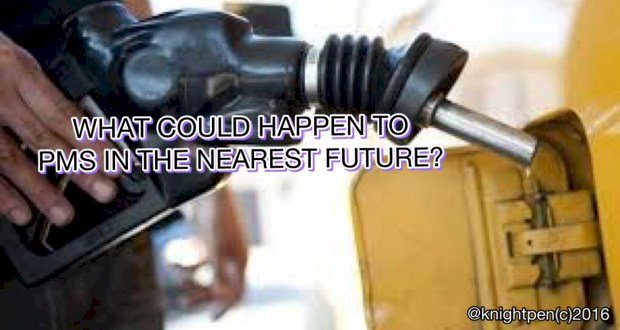WHAT COULD HAPPEN TO PMS IN THE NEAREST FUTURE?
For the sake of clarity, let’s do some little arithmetics, I really do not know your competence on this…, but please let’s concentrate for some minutes..

CALCULATIONS ON REFINE CRUDE
For the sake of clarity, let’s do some little arithmetics, I really do not know your competence on this…, but please let’s concentrate for some minutes.. Now that I get your attention this is it. Is it possible that petrol might become cheaper in future in a deregulated system? Hmmm… That’s a tough one as it seems nothing goes up in Nigeria and ever come down, I mean that in the prices of goods and services available in the country. But basically, a barrel of crude oil will yield over 86ltrs of petrol and this is just a fraction of the final products to be refined from just 1barrel of crude, there are other products like diesel, kerosene, and the rest (all in good volumes) from just one barrel of crude.
These is where the arithmetic really lies.
Today, crude oil is around $50, probably around $15 of this amount is the raw material cost price of over 86ltrs of petrol to be extracted from a barrel of crude oil. If we do the maths, $15/86 = 0.17 dollar. In Nigeria today, $1=NGN360, therefore $0.17 =#61.20 kobo. Based on the analysis that raw material (i.e. crude oil) contributes 80% of petrol price, therefore a petrol product from Nigeria refinery suppose to cost 6120/80 = #76.50 kobo, round it up to #77 naira. Anything above #78/ltr of petrol is the cost of importing the petrol + profit. It is absolutely true that petrol will be cheaper just like in the telecom once the petroleum sector is fully deregulated and all other ingredients are in place. Mind you, nothing is said about break even for local refineries, which can influence the price downward anytime in a competitive market.
Although, In a deregulated system the seller whether importing or producing locally will likely CHOOSE to sell their product where they will get the highest prices. In neighbouring countries, petrol will likely cost more than in Nigeria. Which is why a refined Dangote product will likely have to be subsidised in order to be competitive. So this calculations might no be right. Even if it costs 10kobo to produce petrol in Nigeria, it doesn’t mean it will be cheaper than the ones around maybe in Benin Republic or elsewhere, As such, expect most Nigerian petrol to end up there, not here. As is the case now.














